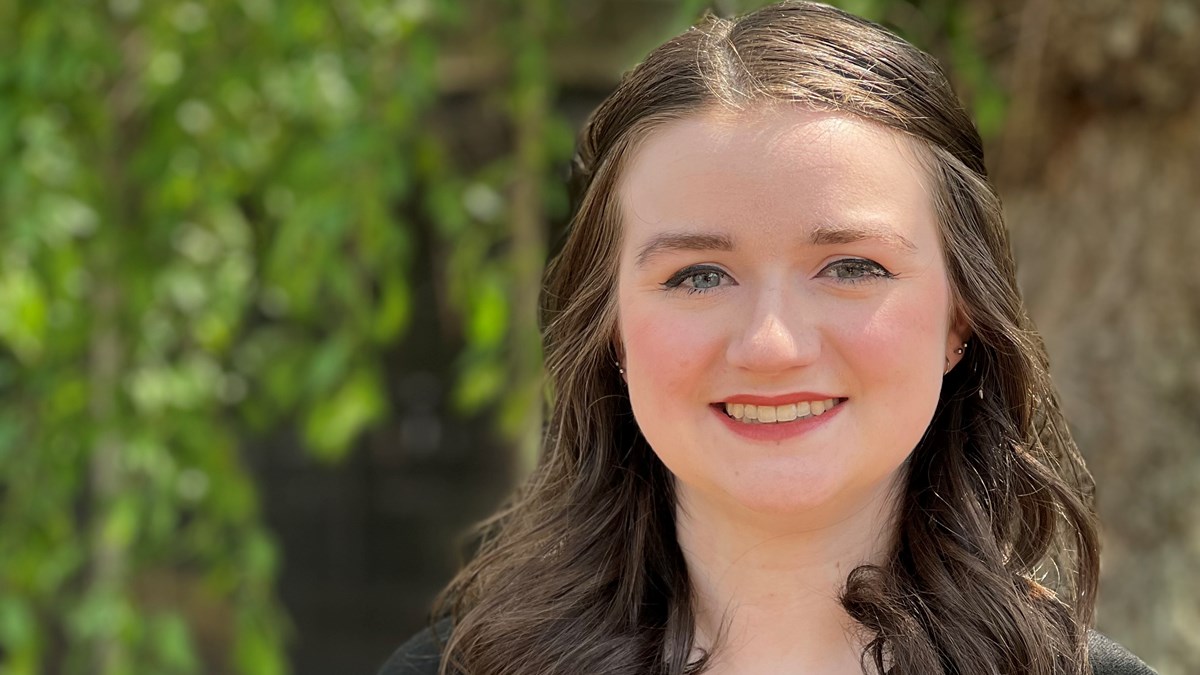Kathleen Stalnaker

“The more I looked into WVU, I realized just how many diverse major offerings were available to me here that I could not find anywhere else. Dance Science is extremely difficult to find as a field of study, and will allow me to pursue my career goals.”
Tell us more about your passion for medicine and dance. What makes you excited about pursuing this field and what was your biggest inspiration?
Dance is a sport, and I believe that this is often overlooked and seldom talked about. I grew up dancing from age four throughout high school – ballet, tap, jazz, you name it – and I always knew that I wanted to apply sports sciences to the performing arts in my career. I hope to work with this particular segment of athletes as either an athletic trainer or a physical therapist for a major ballet company and use the skillsets I have developed as a dancer-athlete to enhance my education from the practitioner lens. I was injured as a dancer and needed physical therapy rehabilitation. It helped me get back to doing what I loved, but the therapy was not designed specifically for dancers. That has always been an area that I would like to expand upon.
Why did you choose to attend West Virginia University and ultimately enroll in your major program in exercise physiology? How does the dance science area of emphasis influence your studies?
I chose to come to WVU when my family decided to move to West Virginia from Central Valley California. The more I looked into WVU, I realized just how many diverse major offerings were available to me here that I could not find anywhere else. Dance science is extremely difficult to find as a field of study at the bachelor’s level or the master’s level. This emphasis will allow me to pursue my career goals with this clientele in mind.
Have you worked with any faculty or staff members who have an effect on you while at WVU?
I started looking into dance science during high school and that is when I discovered that WVU had hired Dr. Descoteaux to pioneer the dance science area of emphasis. I was so excited about what this program would have to offer me. I waited excitedly for the classes to begin during my junior year! In the meantime, I looked into Dr. Descoteaux’s experience as an athletic trainer for Cirque du Soleil and this solidified my decision to pursue exercise physiology. Now, Dr. Descoteaux helps us dig into research topics we are interested in, find relevant studies and explore new passions.
What are you most excited to study in the dance science area of emphasis?
I am most excited to see how my physiology coursework will translate to creating specific rehabilitation for dancers. Rather than just building the muscles around a particular joint like the knee, I would be able to think about exercises that feature dance moves to slowly incorporate dancers back into a studio setting and maintain their range of motion and technique. I also recently enjoyed helping to screen dance majors for potential injury. Being able to do that right away and gain hands-on experience was very helpful. I am now looking forward to case studies that incorporate our exercise physiology skills into the dancer’s health goals.
Is there anything else that you would like to share with prospective students?
Exercise physiology is a challenging experience, but it is worth every second for the type of hands-on experiences you have – learning how to administer exercise tests, how to use lab equipment and gain culminating experience in an internship. We are such a small cohort and we are passionate about dance. It is so nice to be surrounded by peers who are as passionate as I am. We love looking back to our time as dancers and seeing how we could have applied what we are learning now to our experiences. I am getting to learn more about what I love from a whole new side.
jd/06/05/23